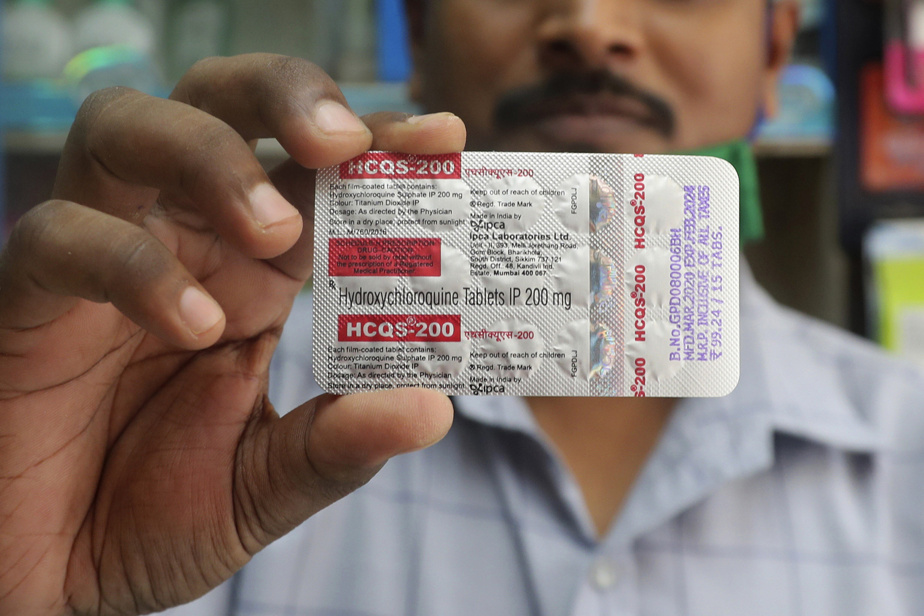At the start of the pandemic, doctors suggested, based on very preliminary results, that a malaria drug would be effective against COVID-19. Hydroxychloroquine quickly proved ineffective and even harmful because of its side effects. An international study calculates that thousands of deaths would have been avoided if doctors had been more careful.
“Our estimate is probably minimalist,” says Steeve Provencher, pulmonologist at Laval University, who is one of the co-authors of the study which will be published in February 2024 in the journal Biomedicine & Pharmacotherapy. “We are identifying the tip of the iceberg. For example, we do not have data for India, where hydroxychloroquine is known to have been used against COVID-19. And we do not have data on patients who were prescribed hydroxychloroquine in an outpatient clinic. »

PHOTO TAKEN FROM LAVAL UNIVERSITY WEBSITE
Steve Provencher
The study analyzes excess mortality linked to the prescription of hydroxychloroquine in 44 cohorts of COVID-19 patients. The number of deaths due to the prescription of hydroxychloroquine is calculated for six countries, including the United States (12,739 deaths), France (199) and Italy (1822).
And in Canada?
We didn’t have any data. But we have the impression that there has been less prescription of hydroxychloroquine here. In Quebec, I know that use has been rather low against COVID-19.
Steeve Provencher, pulmonologist at Laval University
What is the lesson to be learned from this episode of the pandemic? “We understood that there was an urgency to act, but we must remember to be cautious in the absence of conclusive evidence,” said Dr.r Provencher. We had data on rats, but not on human toxicity. And in July 2020, a large American study, Recovery, concluded that hydroxychloroquine was not effective against COVID-19. After that in principle hydroxychloroquine should not have been used to treat COVID-19. »
Quinine
Hydroxychloroquine was synthesized a century ago by Germans to resemble quinine, a traditional indigenous medicine made from the bark of a South American tree. It can cause damage to certain organs and arrhythmia.
The Dr Provencher says patients taking hydroxychloroquine for other medical reasons, such as arthritis or malaria, should not fear continuing their medication. “They should speak to their professional if they are concerned. »
The main authors of the study Biomedicine & Pharmacotherapy are French. Hydroxychloroquine made headlines in France, due to the controversial claims of a Marseille doctor, Didier Raoult, who defended its use and continues to do so. Disciplinary procedures targeted him and some of his colleagues.

PHOTO CHRISTOPHE SIMON, AGENCE FRANCE-PRESSE ARCHIVES
Controversial French doctor Didier Raoult has been one of the strongest supporters of hydroxychloroquine against COVID-19.
In December, researchers called on the preprint site OSF Preprints the withdrawal of all publications of the Dr Raoult on the subject. And last December, a health law in France introduced penalties of 15,000 euros for promoting medical misinformation.
Other molecules that, at the start of the pandemic, were promoted as being effective against COVID-19 have proven to be useless. This is particularly the case for ivermectin, an antiparasitic treatment.
Learn more
-
- 11%
- Excess mortality due to hydroxychloroquine, according to the Recovery study
Source : Biomedicine & Pharmacotherapy
